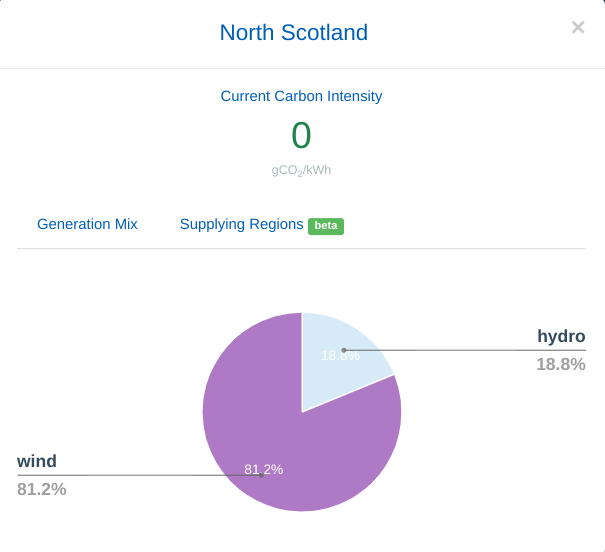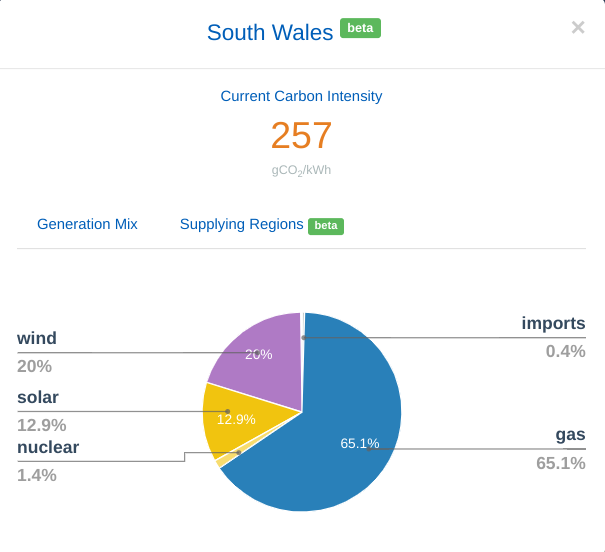the regional lottery for SME emissions
does carbon reporting and transition funding need equity or equality?
According to The Carbon Trust around 44% of the UK carbon emissions are currently from SME (Small and Medium Enterprises). The average SME produces around 15 mtCO2e (metric tonnes of carbon dioxide equivalent) annually with a few factors that can greatly impact this number like sector, location, size and how efficient the SME is with the energy they consume.
So, how does an SME’s location turn carbon emissions into a game of chance?
First we need a little bit of knowledge about one of the biggest regional differentiators in terms of SME emissions, the electricity grid energy generation mix.
There are 14 different electricity “regions” across Great Britain that can have a very different gCO2e (grams of carbon dioxide equivalent) per kWh (kilowatt hour) of electricity consumed at different times of the day. I find Carbon Intensity UK to be the most reliable source of information and data on this subject.
So how does this impact SME carbon emissions? It means that an SME in say the North of Scotland will typically have much lower emissions from the electricity they consume than an SME in the South Wales. At the time of writing this it was:


This difference is due to many factors, but put simply the electricity generation, transmission and storage is more or less carbon intense in those regions.
Generally speaking carbon accounting takes a national average approach to reporting a companies electrical energy consumption emissions.
This is creating equality for SMEs in terms of reporting, but is not a reality and means that any central initiatives such as transition funding will not be targeted and therefore not as effective.
It would be more equitable for SMEs to report their actual regions electrical energy emissions rather than national average otherwise we lose the detail, motivation, and incentives to make localised improvements. Regional reporting will ensure things like transition funding can be targeted on the right things for the right people in the right places.
Equity to give everyone what they actually need to make a difference, rather than equality that could potentially water down any action.
So what can the government, SMEs and individuals do about levelling the playing field across all 14 regions within Great Britain?
Encourage the development of more localised renewal energy generation, grid infrastructure improvements to move energy in and across regions to where green energy is needed and energy storage systems in the regions where green energy is abundant.
Local councils in some cases have blocked even central government backed green energy initiatives that are legitimate improvements sensibly planned and safe.
Education is required to expose the detrimental impact of obstructing local green energy projects on both regional economies and the well-being of residents.